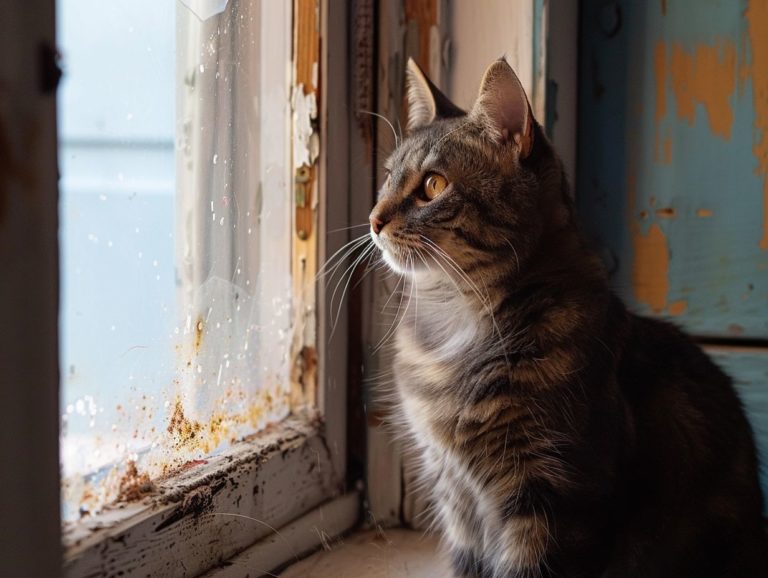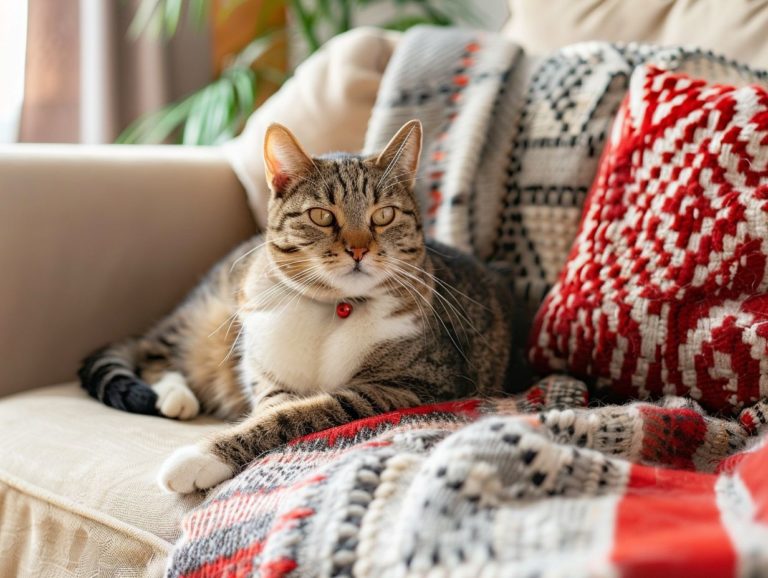Special Considerations For Older Indoor Cats And Insurance
This section explores how the care of older indoor cats may need to be adjusted, as aging cats have distinct needs compared to younger cats. It covers age-related health issues, alterations in the environment, and behavioral changes in older cats.
The significance of insurance coverage for senior cats, key features to consider in a policy, common exclusions, and guidelines for selecting the appropriate insurance plan will be examined.
Additionally, alternatives to insurance and preventive measures to manage the expenses associated with caring for older indoor cats will be discussed.
Key Takeaways:
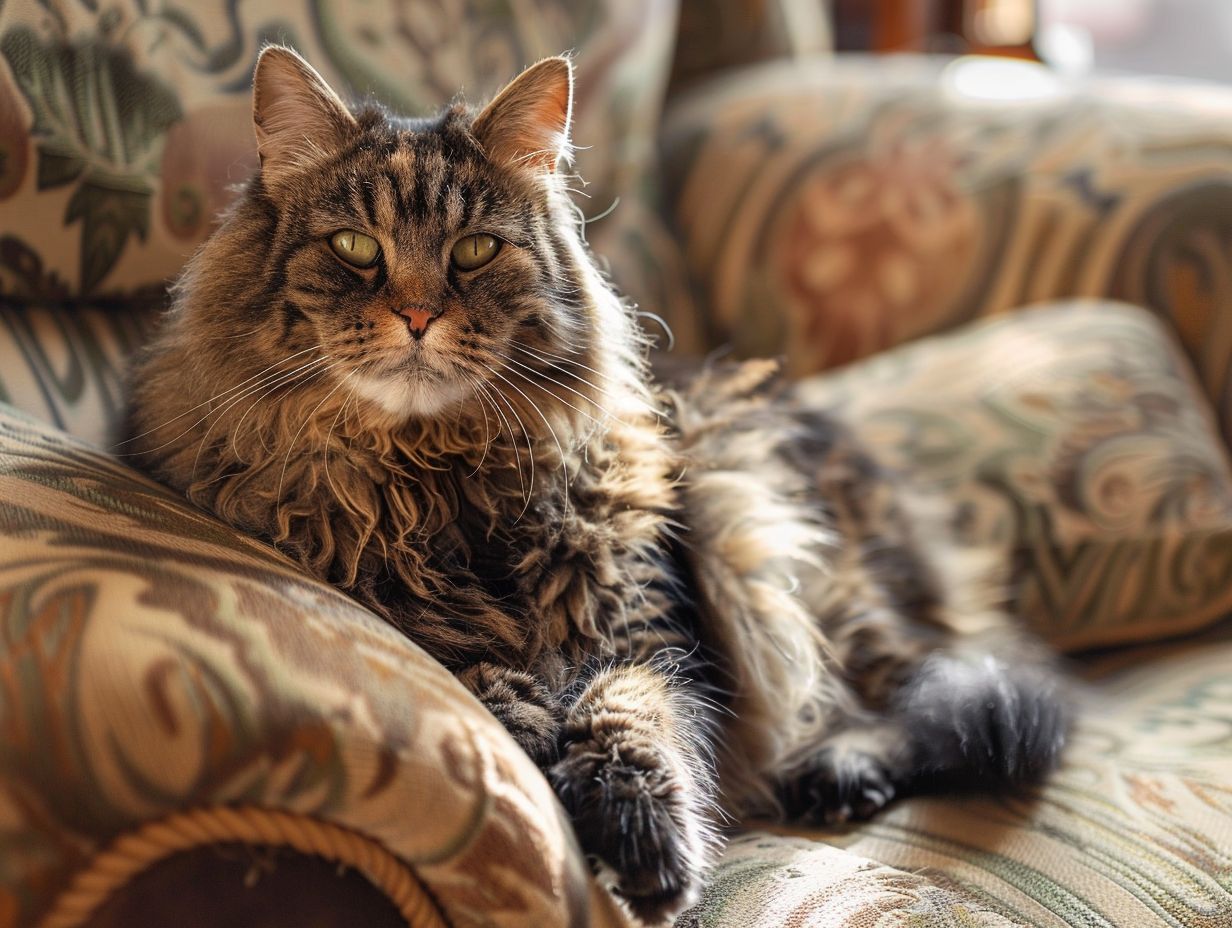
Understanding the Needs of Older Indoor Cats
Understanding the needs of older indoor cats is essential for cat owners to ensure the optimal health and comfort of their senior feline companions. Senior cats face heightened concerns regarding dental health, as well as chronic and hereditary conditions, underscoring the importance of regular wellness check-ups and mental enrichment in their care routine.
Dental issues pose a significant risk for senior cats, with potential problems including tartar accumulation, gingivitis, and tooth decay. Furthermore, senior cats are more susceptible to conditions such as kidney disease, hyperthyroidism, and arthritis. Timely veterinary examinations play a crucial role in diagnosing and addressing these ailments in their initial stages.
Incorporating mental stimulation through interactive toys, puzzle feeders, and an engaging environment is vital for preserving cognitive function and enhancing the overall well-being of senior cats.
Age-Related Health Concerns
Age-related health concerns in senior cats include chronic renal disease, dental problems, and inherited disorders that require specialized veterinary care. Regular wellness exams are essential to monitor and ensure early intervention for these conditions.
As cats age, they face an increased risk of kidney disease, such as chronic renal disease, which can be effectively managed when detected early through routine veterinary check-ups. Dental issues, like periodontal disease, are common in older cats and can cause pain and discomfort if left untreated.
By adhering to a regular veterinary care schedule, these health issues can be promptly addressed, enhancing the quality of life and overall health of the senior cat.
Environmental and Behavioral Changes
Changes in behavior and environment often seen in senior cats can indicate underlying medical conditions or the need for increased mental stimulation. Providing mental stimulation and adjusting the environment for comfort are essential aspects of senior cat care.
With age, cats tend to become less active and may show reduced interest in their usual toys and playtime activities, potentially due to medical conditions such as arthritis, degenerative joint disease, or vision impairments commonly seen in senior cats. Introducing new interactive toys, puzzle feeders, or gentle exercises can help keep a cat’s mind and body engaged.
Creating cozy resting spots, ensuring easy access to food and water, and minimizing environmental stress can enhance the overall quality of life for senior cats.
Insurance Coverage for Older Indoor Cats
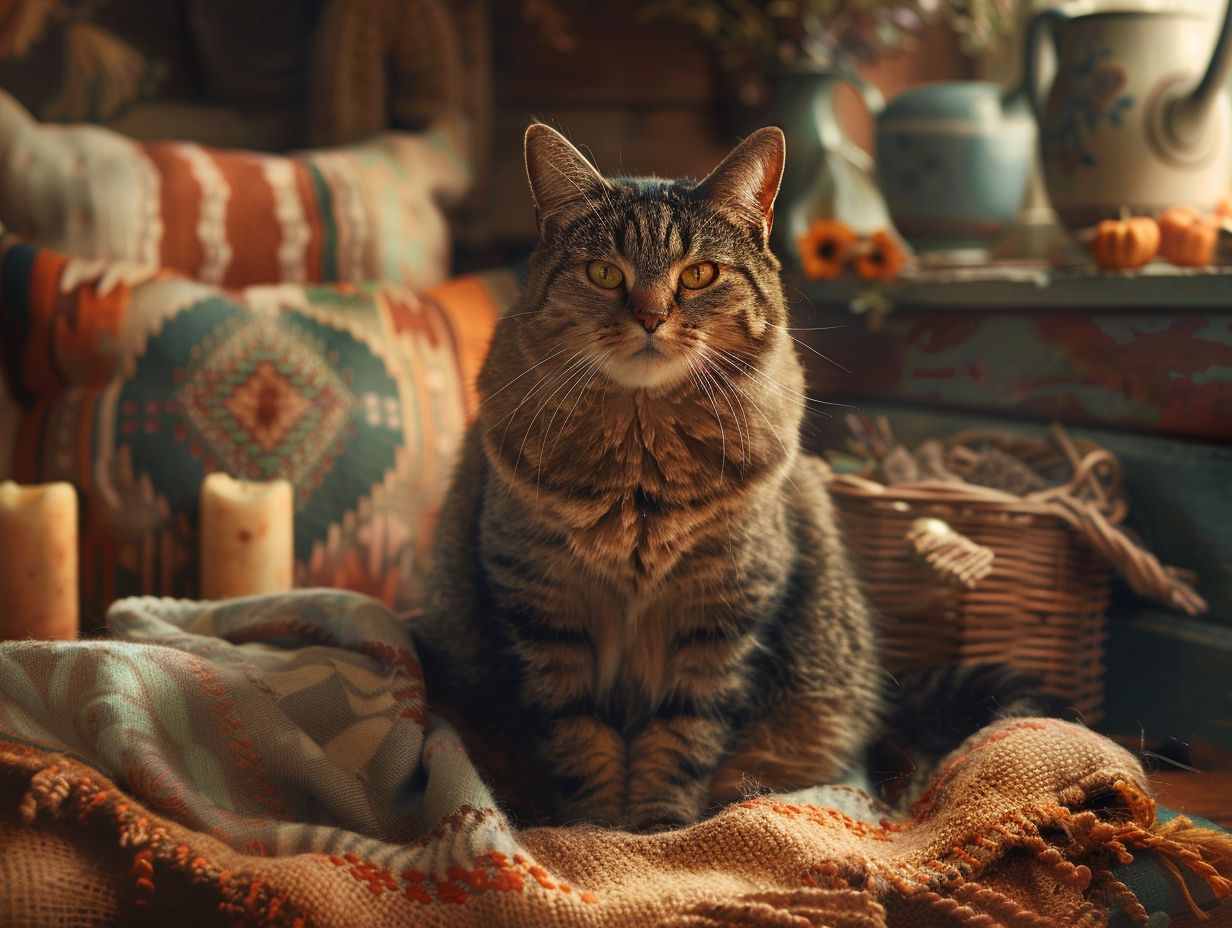
Having insurance coverage for older indoor cats is essential in assisting pet owners in managing the expenses of veterinary care as their cats age. The appropriate pet insurance policy offers peace of mind and ensures that senior cats receive the necessary medical attention.
With advancing age, cats often encounter age-related health issues that require frequent veterinary visits, potential surgeries, or therapies. Feline health plans for senior cats cover these expenses, including diagnostic tests, medications, and hospital stays.
Pet owners have the option to select from a range of coverage options to discover a plan that aligns with their budget and specific requirements. Apart from reducing veterinary costs, this insurance promotes regular check-ups and preventive care, contributing to the maintenance of the health and quality of life of senior cats.
What to Look for in a Policy
When considering insurance for senior cats, important factors to take into account include age limits, monthly costs, and coverage options. The ideal policy is one that addresses the specific medical needs of older pets in a cost-effective manner.
Age limits play a crucial role as many pet insurance policies for senior cats impose restrictions based on age, making the cat ineligible for coverage. Monthly costs are another significant variable to factor in, as premiums are determined by the cat’s age and the extent of coverage. The chosen deductible and reimbursement percentage can also impact the overall costs.
Coverage options are another essential consideration. The best insurance for senior cats will include coverage for the health issues commonly seen in senior cats, ensuring they receive necessary treatment. Some policies may offer wellness coverage for preventive care, which is particularly beneficial for senior cats.
Common Exclusions for Older Cats
Common exclusions in pet insurance policies for older cats typically include pre-existing conditions, specific essential care services, and certain treatments. These exclusions are crucial aspects for pet owners to consider when evaluating coverage options for their older cats.
Pre-existing conditions are often excluded in pet insurance policies for older cats, meaning any health condition diagnosed before purchasing coverage is unlikely to be covered. This exclusion is standard across various pet insurance plans.
Essential care services, such as routine check-ups, vaccinations, and dental cleanings, are frequently excluded from insurance coverage for older cats. While these services are generally less costly than treatments for serious illnesses, they are often the first to be omitted when creating a more budget-friendly policy.
Some cat insurance policies for older cats may restrict coverage for specific veterinary treatments, such as experimental or alternative therapies. Pet owners should carefully review policy details to understand any potential exclusions that could impact their cat’s healthcare.
Choosing the Right Insurance Plan
The best pet insurance for senior cats is the one that offers a combination of multi-pet discounts, affordability, coverage, and the ability to cater to the unique dietary requirements of older cats. The ideal choice depends on what suits your specific senior cat’s needs best.
Considering the age and health factors of senior cats, the most suitable pet insurance plans for them are those that encompass a wide range of services addressing common conditions in older cats, such as arthritis, dental care, and chronic conditions.
The top pet insurance companies for senior cats are those that provide wellness benefits covering routine check-ups and preventive care to enhance and sustain the quality of life for senior cats.
The optimal pet insurance for senior cats should include the option to offer specialized diets or allowances for prescription foods, which are often essential for improving the overall wellness and longevity of senior cats.
Factors to Consider
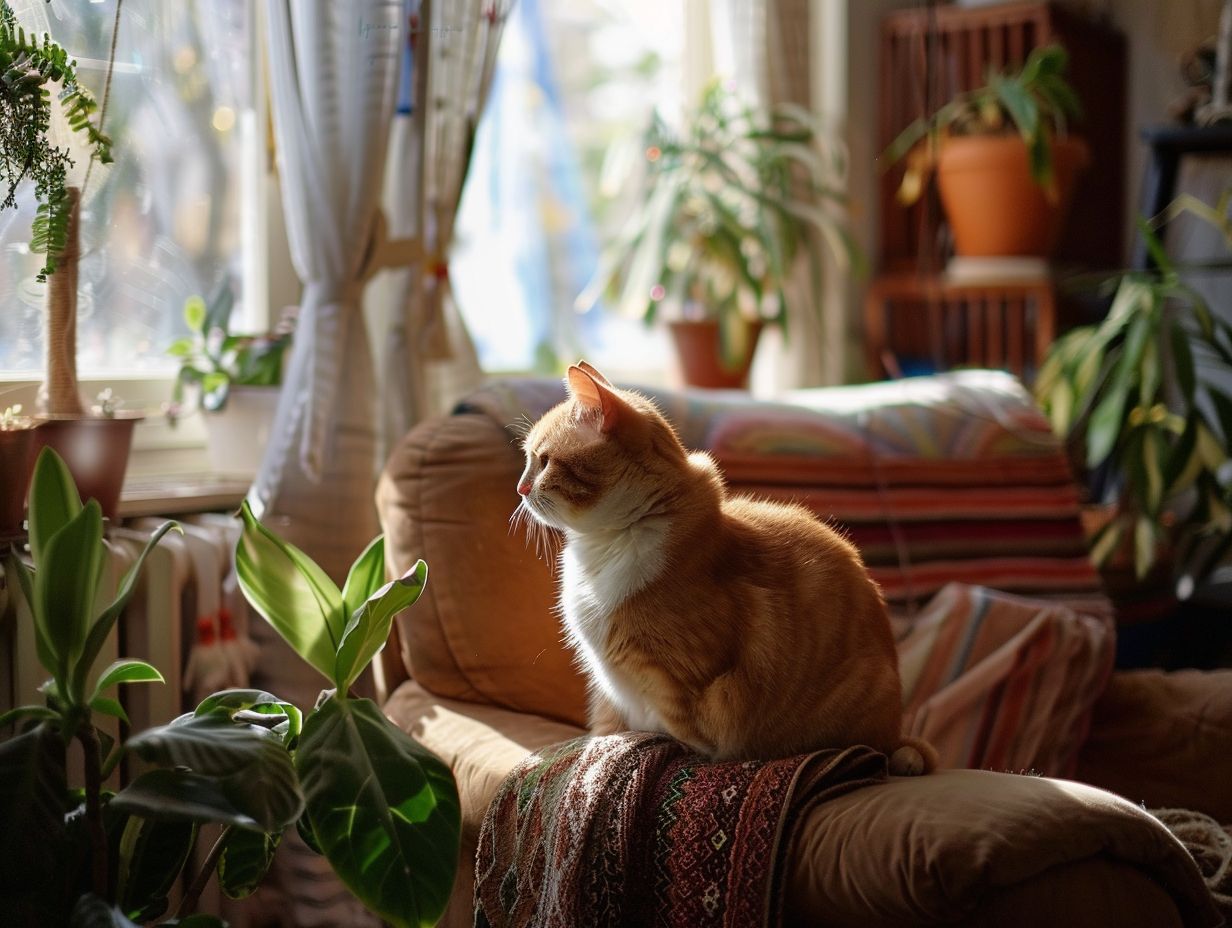
When purchasing insurance for senior cats, people should consider factors such as plan options, potential wellness packages, annual exam fees, and coverage for essential medical care. These components work together to ensure comprehensive coverage for older animals.
Senior cats have unique healthcare needs, underscoring the importance of reviewing the specific coverage offered in different insurance plans. Wellness packages offer preventive care, exam fees impact routine check-up out-of-pocket expenses, and assessing the extent of medical care coverage ensures treatments for common age-related conditions like arthritis and kidney disease are included.
It is important to consider potential limitations or exclusions, waiting periods, and the overall reputation of the insurance provider in the pet healthcare industry.
Managing Costs for Older Indoor Cats
The costs associated with caring for older indoor cats include veterinary expenses for older cats, end-of-life services, and ongoing care for chronic conditions. To reduce these costs, one can explore alternative care options and prioritize preventative care.
In this discussion, we will explore ways to mitigate the financial impact of caring for older indoor cats. Pet insurance for older cats can assist in managing the financial aspects of their care, covering unexpected or costly veterinary procedures. Setting up a dedicated savings fund for your cat’s medical expenses can alleviate the financial strain of caring for older cats by providing a safety net for unforeseen expenses.
Regular wellness check-ups and screenings can help lower long-term treatment costs by detecting health issues early. Planning financially for end-of-life services, such as hospice care and cremation services, is essential in managing indoor cat care costs and should be budgeted for to ensure a dignified farewell to one’s feline companion.
Alternative Options for Care
For senior cats, alternative care options include physical therapy, alternative treatments, or consultation with a veterinary surgeon for urinary or fecal incontinence. These alternatives can complement traditional medical care for elderly pets.
Alongside physical therapy, senior cats may benefit from acupuncture, chiropractic care, or hydrotherapy to address incontinence or geriatric issues. Alternative treatments like herbal supplements, CBD products, or specialized diets formulated for senior cats’ needs can also significantly enhance their overall well-being.
Consulting with a specialized veterinarian focusing on senior cat care provides valuable insights and personalized treatment plans for addressing specific medical conditions or geriatric concerns that may arise in aging cats.
Preventive Measures to Reduce Expenses
To reduce the overall cost of senior cat care, the focus should be on preventive measures related to dental health, proper diet, and general proactive care. These steps promote the overall health and well-being of senior cats.
Regular veterinary check-ups are important to maintain the health of senior cats and identify potential problems early on. Proper dental care, including regular cleanings and monitoring for signs of gum disease, is essential to avoid expensive dental procedures in the future.
Providing proper nutrition tailored to the needs of senior cats can assist with weight management and help prevent obesity-related health issues. Incorporating interactive play sessions and mental stimulation activities can encourage exercise and promote mental health in senior cats, leading to a healthier and more enjoyable life.
Frequently Asked Questions
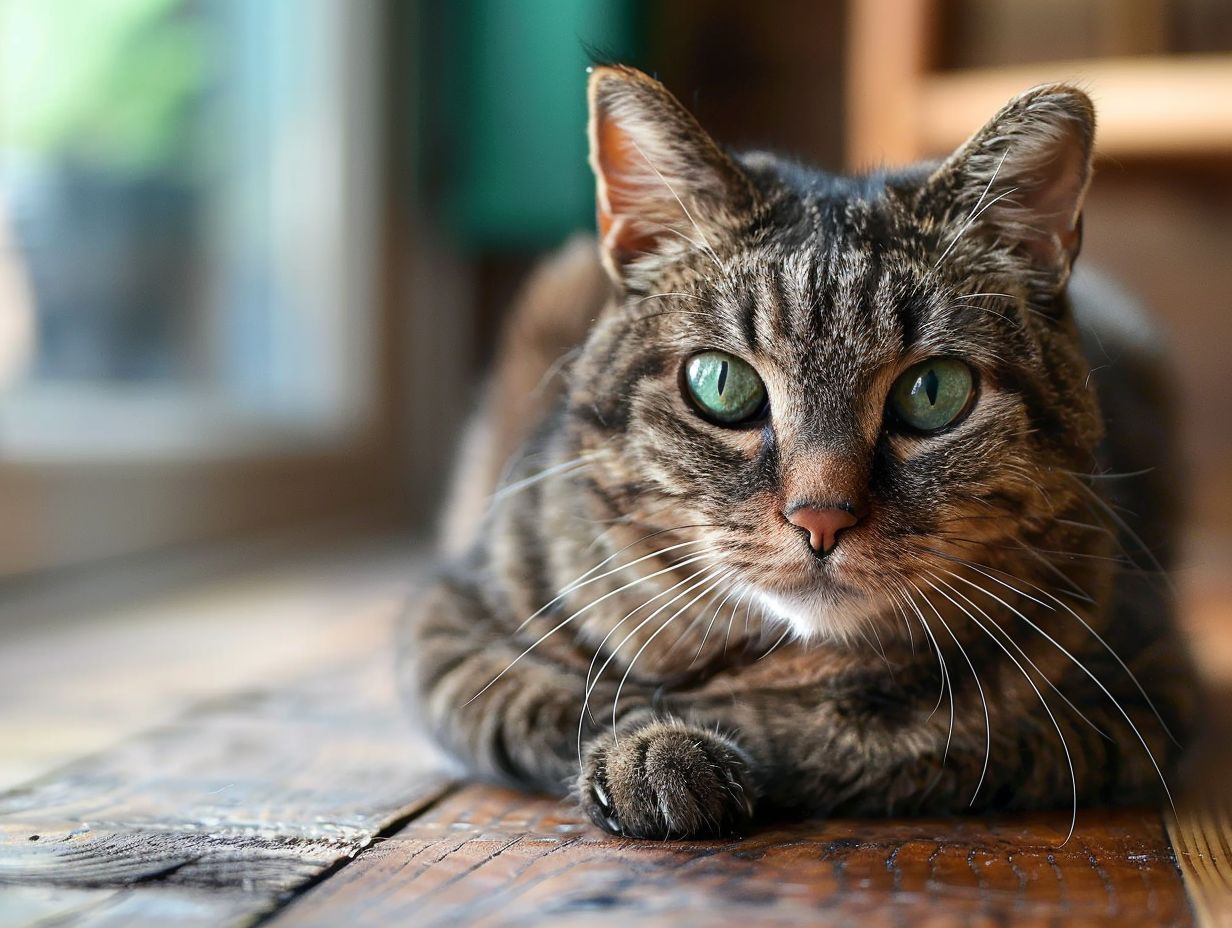
What are some special considerations for insuring older indoor cats?
As cats age, they may develop health issues that require more frequent vet visits and potentially expensive treatments. This should be taken into consideration when insuring an older indoor cat.
Do indoor cats require insurance?
While indoor cats may have a lower risk of accidents and injuries, they can still develop health issues as they age. Insuring your older indoor cat can help cover the costs of necessary medical treatments.
What factors should I consider when choosing insurance for my older indoor cat?
Some key factors to consider when choosing insurance for your older indoor cat include their age, any pre-existing conditions, coverage options, and cost.
Will insurance cover pre-existing conditions for my older indoor cat?
Most insurance providers do not cover pre-existing conditions for cats, regardless of age. It’s important to carefully review the terms and conditions of a policy before enrolling your older indoor cat.
Are there any specific insurance plans for older indoor cats?
Some insurance providers offer specialized plans for older cats, which may include coverage for age-related conditions such as arthritis or dental problems. It’s recommended to research and compare different plans to find the best fit for your older indoor cat.
Can I still insure my older indoor cat if they have a chronic health condition?
Yes, you can still insure your older indoor cat even if they have a chronic health condition. However, the pre-existing condition may not be covered and there may be limits on the coverage for that specific condition.

